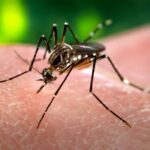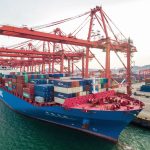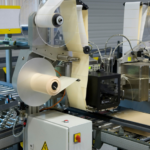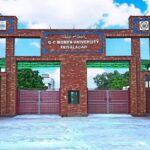ISLAMABAD, Jun 10 (APP):Minister of State for Climate Change Zartaj Gul on Wednesday informed the Senate that National Electric Vehicle Policy was being brought to control air pollution in the country.
Responding to various supplementary questions during Question Hour, the minister said in order to control the environmental pollution in Islamabad Capital Territory (ICT), Pakistan Environmental Protection Agency (Pak-EPA) has notified the various National Environmental Quality Standards (NEQS).
According to the NEQS, all the industries of ICT were bound to control water and air pollution through installation of water treatment system/pollution control systems, she said.
Zartaj Gul said in February 2018, Pak-EPA conducted an ambient air quality assessment survey of entire industrial areas of ICT. Pak-EPA led a detailed survey of different industrial zones of Islamabad to identify and categorize the number and types of industries, she added.
The minister said in ICT, there were approximately 185+ industrial units including different scale of sizes. Among all of these industrial units, major industries were steel furnaces, marble and pharmaceuticals which were also under observation by Pak-EPA. Out of 185+ industrial units, steel industries and brick kilns were being considered as a major air polluting Industries in ICT, she said.
She said all six operational steel furnaces situated in ICT have now installed pollution abatement technology which was being monitored by Pak-EPA regularly for ensuring the compliance of NEQS. Gradually every industry situated in Islamabad Capital Territory (ICT) were being taken in loop for the installation of pollution abatement technology, she added.
The minister said Pak-EPA directed brick kiln owners to adopt zig-zag technology on immediate basis. The technology was introduced with the cooperation of the All Pakistan Brick Kiln Owners Association (APBKOA), she said.
She said in ICT, five out of 64 brick kilns have now turned over their kilns on newly environment friendly zig-zag technology. The zig-zag kiln technology has been established to embellish fuel efficiency, energy savings and lessening in emissions, she added.
She said all the owners of brick kilns who have not yet installed the pollution control technology have now submitted affidavits to convert their kilns to environment friendly zig-zag technology by the end of 2020.
Further, as per Government’s anti-pollution measures, the Brick kilns would be given financial aid to use zig-zag technology which was environmentally friendly.
The minister said recently, Pak-EPA has sealed five Brick Kilns who were operating their kilns in Sector H-16, Islamabad without installation of pollution control technology.
She said the major factor of vehicular emission pollution was old age diesel truck and buses. Diesel vehicles due to overloading, faulty injection nozzles and weak engine emit excessive graphite carbon (visible smoke). Therefore, the Government has approved mandated minimum penetration targets for Electric Vehicles.
The National Electric Vehicle Policy has already been developed to ensure meeting the penetration numbers set forth. This policy would begin an era of clean air in the country that we desperately need for our future generations, she added.
Regarding steps taken for controlling water pollution, Zartaj Gul said there were two waste water treatment plants with capacity of 17 and 5 million gallons per day in sector I-9 to treat sewage of the city.
Whereas, for the rural areas of ICT, there was no proper system of severs or treatment facility in the areas including Bhara Kahu, Bani Gala, Muslim Colony, Bari Imam and they were dumping their raw sewage into fresh water streams of Rawal Lake, she said.
The minister said the Supreme Court of Pakistan had directed CDA / ICT to stop sewage directly being thrown in the fresh streams of Rawal Lake by the illegal. /unlawful settlements.
After carrying out comprehensive study of the Rawal Lake catchments areas, CDA/ICT had identified four sewerage treatment plants and prepared a PC-I and submitted it to the Planning & Development Division for securing funds for the purpose.
She said 124 cases were registered in the Environmental Protection Tribunal (EPT) by Pak-EPA against the residents of Bari Imam, Bhara Kahu, Bani Gala and Muslim Colony who were dumping raw sewage into the fresh water streams of catchment areas of Rawal Lake.
Legal Notices had also been issued to housing societies viz National Police Foundation, Multi Professional, Services Cooperative, Pakistan Medical Cooperative Housing Society Federation of Employees Cooperative Housing Society, etc. for discharging untreated waste water into rainwater stream, she added.
She said in the process of EIA approvals for housing societies it was mandatory for the proponent to designate a site for the installation of sewerage treatment plant.
Electrical Vehicle Policy being introduced to control air pollution: Senate told







